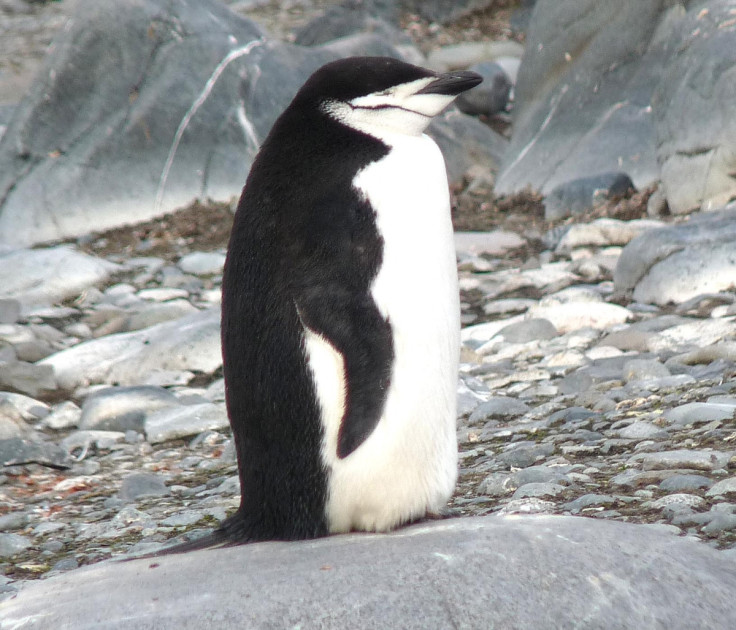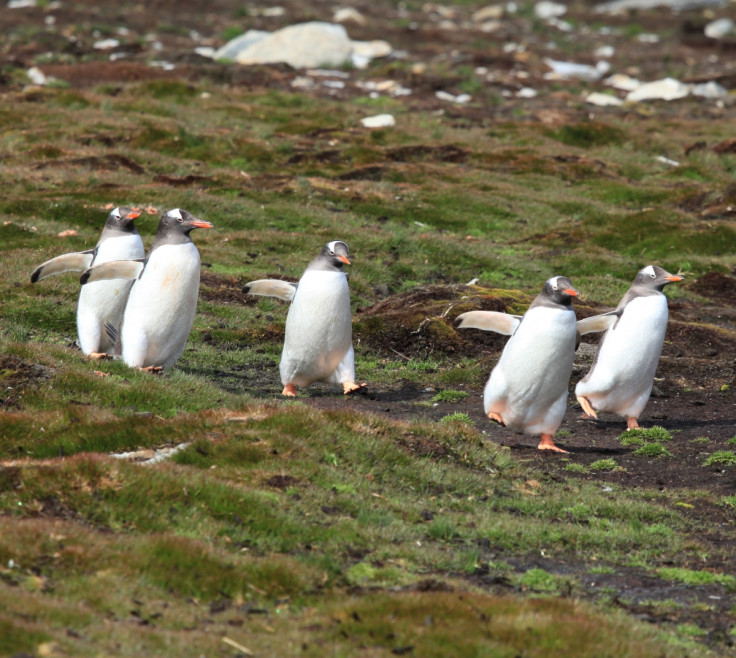Climate Change 'Has Gone Too Far for Most Penguins'

Climate change is causing a decline in penguin populations and "has gone too far" for most species, experts have said.
Published in the journal Scientific Reports, researchers looked at how penguin populations have changed over the last 30,000 years.
Findings showed that between the last ice age through to 1,000 years ago, penguins benefited from climate warming and retreating ice. However, recent declines in population numbers suggest penguins are in danger because ice is retreating too far and or too fast.
Lead author Gemma Clucas, from Ocean and Earth Sciences at the University of Southampton, said: "Whereas we typically think of penguins as relying on ice, this research shows that during the last ice age there was probably too much ice around Antarctica to support the large populations we see today.
"The penguins we studied need ice-free ground to breed on and they need to be able to access the ocean to feed. The extensive ice-sheets and sea ice around Antarctica would have made it inhospitable for them."
The team found three species of penguin - Chinstrap, Adélie and southern populations of Gentoo – increased in numbers as Antarctica warmed after the last ice age.

The team estimated population changes by collecting feather and blood samples from 537 colonies around the Antarctic Peninsula. They then sequenced DNA that evolved quickly to look at the rate of mutation to chart how the size of these populations varied over time.
"What is particularly interesting is that after the ice age, all of these penguin populations were climate change 'winners', that is to say the warming climate allowed them to expand and increase in number," Clucas said.
"However, this is not the pattern we're seeing today. Adélie and Chinstrap penguins appear to be declining due to climate change around the Antarctic Peninsula, so they've become 'losers'. Only the Gentoo penguin has continued to be a 'winner' and is expanding its range southward."
Study co-author Tom Hart added: "We are not saying that today's warming climate is good for penguins, in fact the current decline of some penguin species suggests that the warming climate has gone too far for most penguins.
"What we have found is that over the last 30,000 years different penguin species have responded very differently to a gradually warming world, not something we might expect given the damage current rapid warming seems to be doing to penguins' prospects."
© Copyright IBTimes 2024. All rights reserved.






